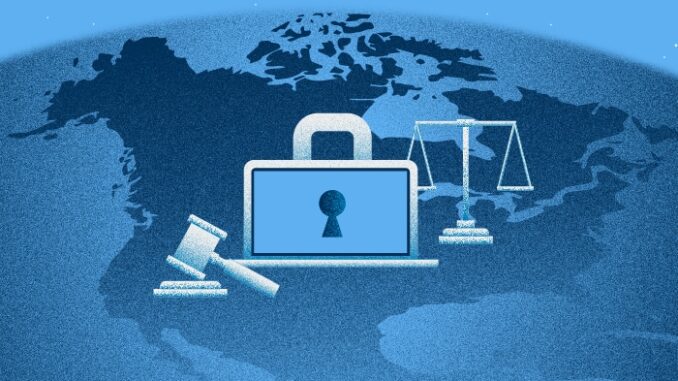
In today’s interconnected world, personal data is constantly being collected, shared, and stored online. Whether it’s your browsing history, financial information, or personal communications, your data is vulnerable to misuse and theft. That’s why data privacy laws are more important than ever. In this post, we’ll explain why these laws matter and how legal services can help you navigate and protect your data rights.
What Are Data Privacy Laws?
Data privacy laws are designed to protect individuals’ personal information from unauthorized access, use, or disclosure. These laws regulate how organizations collect, store, and manage personal data. With the rise of digital technologies, these laws have become crucial in ensuring individuals’ rights to control their own data.
Key Components of Data Privacy Laws:
- Collection: Regulating how companies collect personal data.
- Storage: Ensuring data is stored securely and used only for its intended purpose.
- Consent: Ensuring individuals give informed consent before their data is used.
- Access: Granting individuals the right to access, correct, and delete their data.
Major Data Privacy Laws Around the World
1. General Data Protection Regulation (GDPR)
The GDPR is one of the most significant data privacy laws globally. It applies to organizations that process the personal data of individuals residing in the European Union (EU). The GDPR gives individuals more control over their personal data and imposes strict rules on businesses about how they handle and protect that data.
Key aspects of GDPR include:
- Right to access personal data.
- Right to be forgotten, allowing individuals to request deletion of their data.
- Data portability, enabling individuals to transfer their data from one service provider to another.
2. California Consumer Privacy Act (CCPA)
The CCPA is a data privacy law in California that gives residents more control over their personal information. The CCPA mandates that businesses disclose the data they collect and provide consumers with the option to opt-out of having their data sold.
Key features of CCPA include:
- Right to know what personal information is being collected.
- Right to delete personal data.
- Right to opt-out of data sales.
3. Personal Data Protection Act (PDPA) in Singapore
Singapore’s PDPA regulates how organizations collect, use, and disclose personal data. The law aims to balance the need for businesses to use personal data and the need to protect individuals’ privacy.
Key provisions include:
- Consent obligation before collecting data.
- Data access and correction rights for individuals.
- Data protection officers to oversee compliance.
Why Data Privacy Laws Matter in Today’s Digital Age
With the increasing reliance on digital technologies, personal data is at greater risk than ever before. Here’s why data privacy laws are essential:
1. Protection Against Data Breaches
Data breaches are becoming more common, and they can have serious consequences for individuals. Sensitive information like social security numbers, credit card details, and medical records can be stolen and used for identity theft or fraud. Data privacy laws help ensure that organizations implement robust security measures to protect your data from unauthorized access.
2. Control Over Your Personal Information
Data privacy laws empower individuals by giving them more control over their personal information. You have the right to know what data is being collected about you, how it’s being used, and who it’s being shared with. This allows you to make informed decisions about where and how your data is used.
3. Transparency in Business Practices
Businesses that collect and process personal data are required by law to be transparent about their practices. They must inform you about what data they collect, why they need it, and how long they will keep it. This transparency fosters trust between consumers and businesses.
4. Legal Recourse in Case of Violations
If an organization fails to comply with data privacy laws, you have the right to seek legal action. This ensures that companies are held accountable for mishandling personal data and provides individuals with a way to address violations.
The Role of Legal Services in Data Privacy Protection
Navigating data privacy laws can be complex, especially for businesses. Legal services play a crucial role in helping individuals and organizations understand, implement, and comply with these laws.
1. Legal Advice for Data Protection
Lawyers specializing in data privacy can advise individuals on how to protect their personal data. They can explain your rights under various data privacy laws like GDPR, CCPA, and PDPA, and help you take action if your data rights are violated.
2. Ensuring Business Compliance
For businesses, complying with data privacy laws is essential to avoid penalties and reputational damage. Legal services can help companies develop and implement data protection policies, conduct risk assessments, and ensure that their data practices align with the law.
3. Drafting Privacy Policies and Contracts
Businesses need clear privacy policies that inform customers about how their data will be used. Legal professionals help draft these policies to ensure they comply with relevant laws. They also assist in creating contracts that govern how data is shared with third parties.
4. Assistance During Data Breaches
In the event of a data breach, legal services are vital in helping businesses navigate the aftermath. Lawyers can guide businesses on how to notify affected individuals, mitigate damages, and comply with legal requirements. For individuals, lawyers can assist in recovering damages if their data is compromised.
How Legal Services Can Help Individuals Safeguard Their Data
1. Privacy Rights Education
Legal experts can educate individuals about their privacy rights under various data protection laws. Understanding your rights, such as the right to access and delete your data, is crucial in protecting your privacy in the digital world.
2. Taking Action Against Violations
If your personal data is mishandled or breached, legal services can help you take action. Whether it’s negotiating with a business, filing a complaint with regulatory bodies, or pursuing legal action, a lawyer can assist in securing justice.
3. Protecting Your Digital Identity
Legal professionals can help individuals understand how to protect their digital identity and personal information from threats like identity theft and data mining. They can advise on best practices for securing online accounts and data.
Conclusion: The Importance of Legal Services in the Digital Age
In an increasingly digital world, data privacy laws are essential in protecting your personal information. These laws empower individuals to control how their data is collected, used, and shared. Legal services play a vital role in ensuring both individuals and businesses understand and comply with these laws, offering guidance, representation, and protection when needed.



Leave a Reply